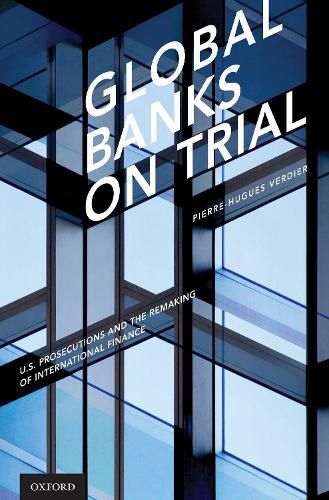Readings Newsletter
Become a Readings Member to make your shopping experience even easier.
Sign in or sign up for free!
You’re not far away from qualifying for FREE standard shipping within Australia
You’ve qualified for FREE standard shipping within Australia
The cart is loading…






In the years since the 2008 financial crisis, U.S. federal prosecutors have brought dozens of criminal cases against the world’s most powerful banks, charging them with manipulating financial indices, helping their customers evade taxes, evading sanctions, and laundering money. To settle these cases, global banks like UBS, Barclays, HSBC and BNP Paribas paid tens of billions of dollars in fines. They also agreed to extensive reforms, hiring hundreds of compliance officers, spending billions on new systems, and installing independent monitors. In effect, they agreed to become worldwide enforcers of U.S. law, including financial sanctions-sometimes despite their own governments’ protests.
This book examines the U.S. enforcement campaign against global banks across four areas: benchmark manipulation, tax evasion, sanctions violations, and sovereign debt. It shows that U.S. prosecutors have unilaterally carved out a new role as global bank regulators, heralding a fundamental shift in how international finance is overseen. Their ability to do so stems from U.S. control over access to vital hubs of the international financial system. In some areas, unilateral U.S. actions have ushered in important multilateral reforms, such as the rise of automatic tax information exchange and better-regulated financial indices. In other areas, such as financial sanctions, unilateralism has attracted protests from other states and spurred attempts to challenge U.S. dominance of international finance.
$9.00 standard shipping within Australia
FREE standard shipping within Australia for orders over $100.00
Express & International shipping calculated at checkout
In the years since the 2008 financial crisis, U.S. federal prosecutors have brought dozens of criminal cases against the world’s most powerful banks, charging them with manipulating financial indices, helping their customers evade taxes, evading sanctions, and laundering money. To settle these cases, global banks like UBS, Barclays, HSBC and BNP Paribas paid tens of billions of dollars in fines. They also agreed to extensive reforms, hiring hundreds of compliance officers, spending billions on new systems, and installing independent monitors. In effect, they agreed to become worldwide enforcers of U.S. law, including financial sanctions-sometimes despite their own governments’ protests.
This book examines the U.S. enforcement campaign against global banks across four areas: benchmark manipulation, tax evasion, sanctions violations, and sovereign debt. It shows that U.S. prosecutors have unilaterally carved out a new role as global bank regulators, heralding a fundamental shift in how international finance is overseen. Their ability to do so stems from U.S. control over access to vital hubs of the international financial system. In some areas, unilateral U.S. actions have ushered in important multilateral reforms, such as the rise of automatic tax information exchange and better-regulated financial indices. In other areas, such as financial sanctions, unilateralism has attracted protests from other states and spurred attempts to challenge U.S. dominance of international finance.